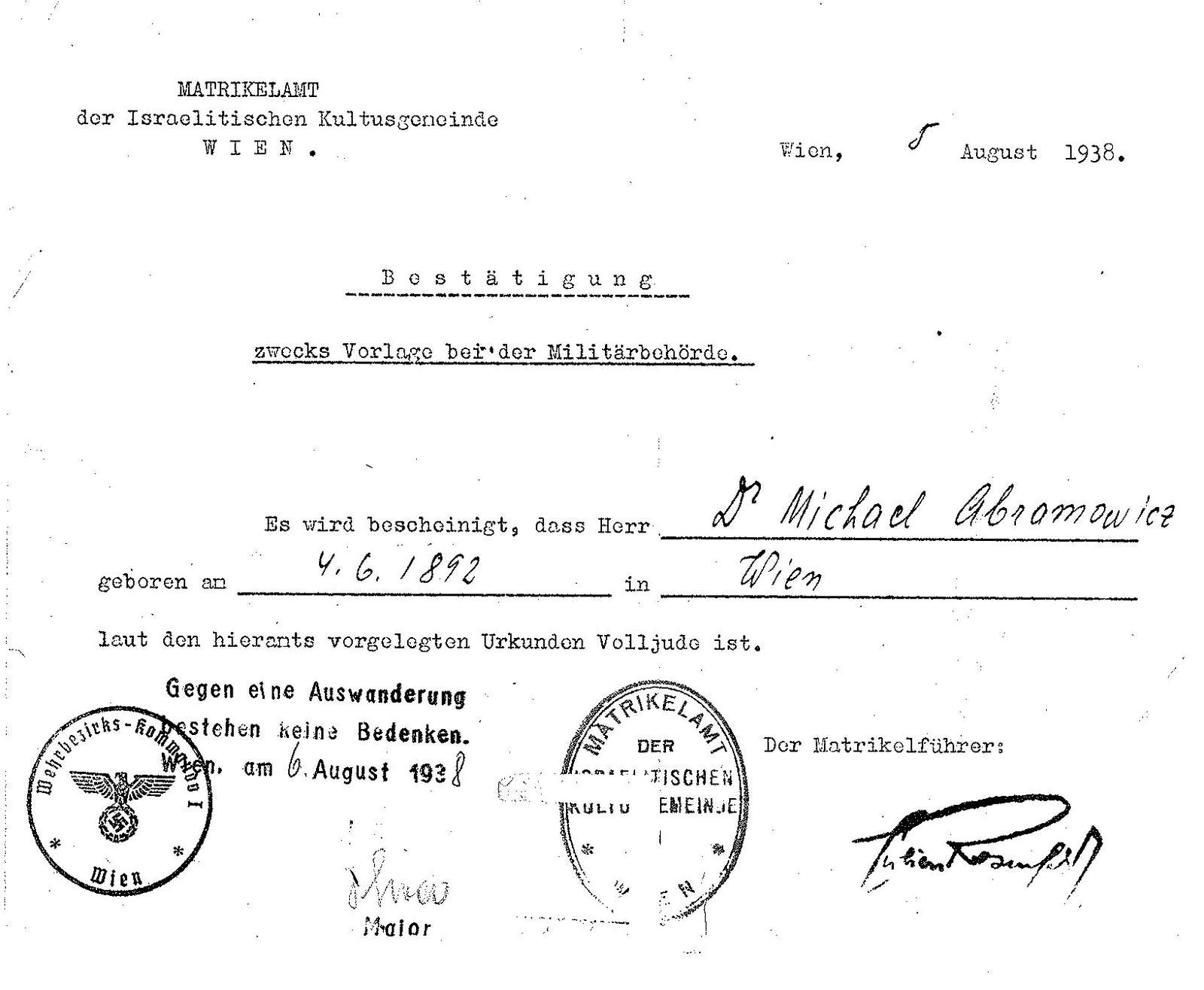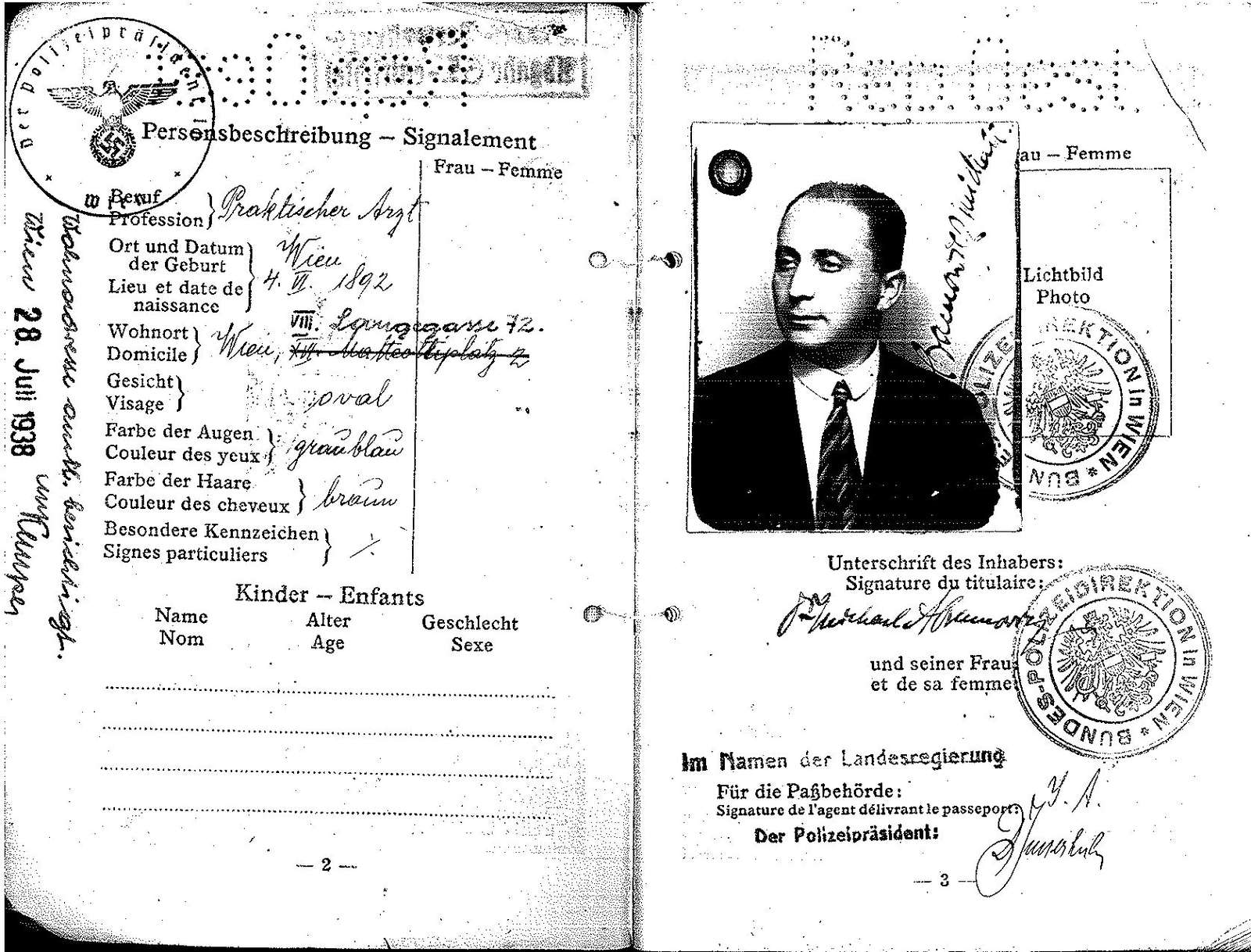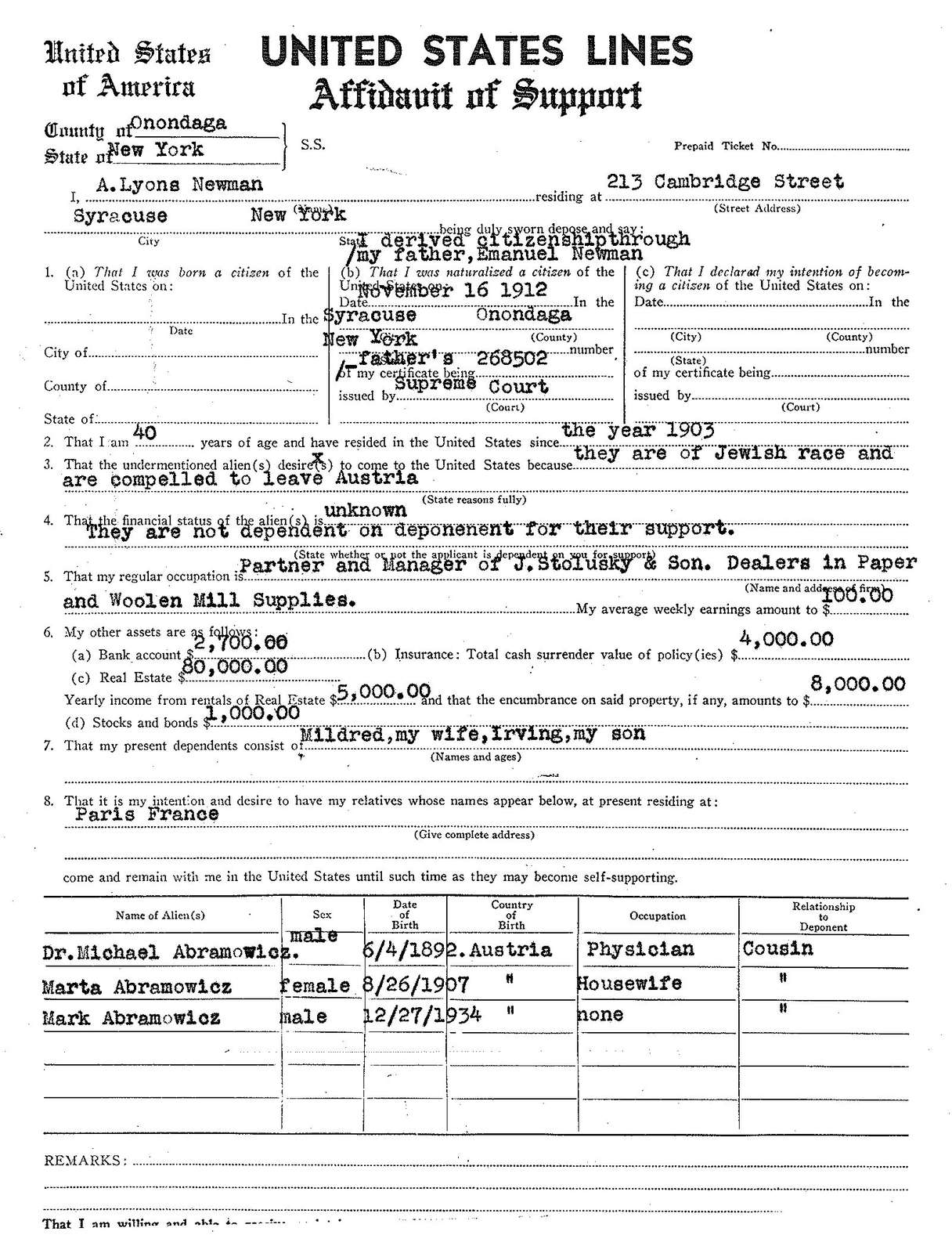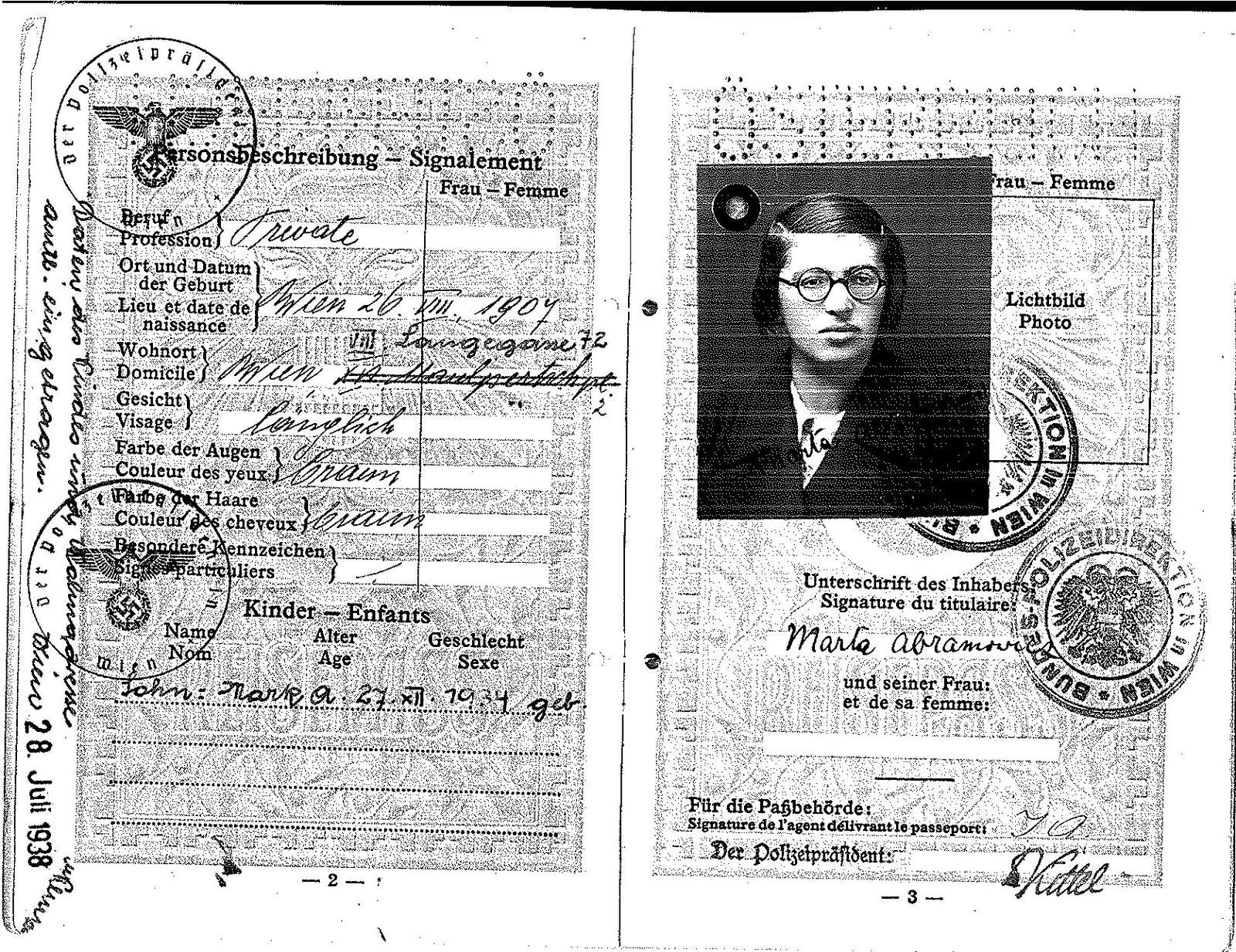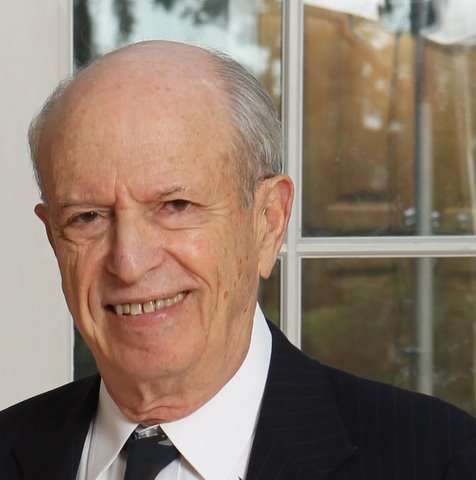Mark Abramowicz
You know, these are difficult times ...
Some time after the "Anschluss", between May and September of 1938, three or four young men in uniform (I think I remember seeing them standing in the doorway, even though I was only three years old) came to our apartment and told us we would have to leave it, because a Nazi doctor was taking over the apartment and my father's practice.
Later, I have been told, the doctor himself came to the apartment to see what he was getting, and told my mother that he liked it just as it was, and we were not to take anything with us. He commented on how especially pleasant my room was, saying that he had a boy of his own. My mother asked him if he wasn't at all ashamed. I don't know if he answered. I do know, though, that in 1963 when I was serving in the US Army in Germany, I travelled to Vienna and went to the apartment to find he was still there, practicing medicine. His receptionist refused to let me in, and I didn't pursue the matter, which I now regret.
It was clear to my parents that we had to leave not just the apartment but Austria as well. Friends had already been arrested, and an 18-year-old boy who lived downstairs and belonged to some sort of socialist youth organization had disappeared, and an urn containing his ashes had been sent to his parents. Since I was only three years old, and my father was no longer young, we couldn't walk across the mountains to Switzerland, so we obtained (I'm not sure how) false papers saying that we were French, and took a train across Germany to the French border. My parents believed that if we were discovered in Germany, we would be shot immediately, and they were concerned that when I spoke German (it's difficult to tell a three-year-old not to talk), the authorities would realize we were not French.
Apparently, our false documents were not impressive enough to get us cross the French border, so we got off the train in Saarbrücken and took a taxi to an isolated place where we waded across a river into France. The taxi driver carried me across the river and then stole my mother's jewelry, which we had been counting on as a source of funds in France. For some reason, I vividly remember the taxi and being carried across the river. This episode and the police at our door in Vienna are the only distinct memories (mental snapshots, really) that I have of this period.
I am not sure how we got from the border to Paris, but I have been told that we stopped at a house with a Jewish name on the mailbox and asked for help. My mother overheard the man of the house say to his wife that these people are probably thieves, but he gave us some money nevertheless, in exchange for my father's silver cigarette case.
We finally reached Paris, where we had some friends, and spent three tedious months waiting in line at embassies, trying to retrieve documents, getting an affidavit and all the other things we needed to do to get to the United States. The presence of a three-year-old made all of this doubly difficult, so I was sent to a children's home for ten weeks to live with other little refugees. I don't remember that, but I have been told I learned to speak French in that time.
Through a lucky coincidence, my father had applied for a visa at the US Consulate in Vienna when he had gone there to receive a letter (addressed to Dr. Michael Abramowicz, US Embassy, Vienna) from a relative in America who was concerned about us after the "Anschluss". The officer at the embassy who gave my father the letter said: "You know, these are difficult times, Doctor. We have a waiting list for visas to the United States. Your are here, and the book to sign up for a visa is here too. Why don't you sign it?" Through such happenstances did we and others like us manage to escape from Europe.
In Paris, though, it was difficult to get the visa from Vienna. My mother knew the name of a powerful French woman, Maria Bonaparte [1], known to be sympathetic to Jewish refugees. My mother said later that we survived the war because she called Madame Bonaparte at eight o'clock in the morning, before her secretary came to work. Her intervention cleared the bureaucratic obstacles: the officer at the US Embassy who had said it would take many months to obtain our visas from Vienna asked if we would mind waiting six days.
On the ship to the United States, I first heard a new language that, to my confusion, was neither German nor French. When we arrived here, I soon showed symptoms of Scarlet Fever and spent three weeks in the isolation ward of a hospital in Syracuse, New York, where we had some distant cousins. When I came out, I spoke English.
My father went to New York City to study for medical examinations. For a while, my mother and I stayed in Syracuse. I went to nursery school and she went to work in a factory. Then we also moved to New York, and my mother found work in another factory while my father studied and I went to nursery school. It took two and a half years for my father to learn enough English to pass the medical examination that qualified him to practice here. Once he had his license, we moved to a small village (Collins Center, population 200) in a rural part of New York State and after a year there, to a slightly larger town (South Dayton). I liked living in the country, and my father made a decent living as a physician there, but the work was hard (many house calls, delivering babies), the winters were harsh, and my parents, who had lived in Vienna all their lives, felt terribly out of place among the farmers of upstate New York.
After two years in the country, we moved back to New York City. My father had just started to look for work there when he was killed in a bizarre accident. The house we lived in had a self-service elevator, and one evening as we were going out, the elevator started up as my father was getting out and I was still in it. He hit his head against the top of the elevator door frame, which broke his neck. He died instantly.
My mother and I moved to Boston, where she was able to go to school to become a social worker. Once again, my presence made a difficult life more difficult, and I was sent to a boarding school where I stayed for three years. The first summer after my father's death, I caught polio in summer camp and nearly died, but ultimately survived without any residual paralysis. I returned to Boston to live with my mother and grew up there in a two-room apartment.
As I see it, none of this would have happened if the Austrian authorities had not forced us to leave Vienna.
[1] Princess Maria Bonaparte (1882-1962), psychologist; student and friend of Sigmund Freud; married to Prince George of Greece; helped - among others - the Freud family with their escape from Vienna in 1938.


